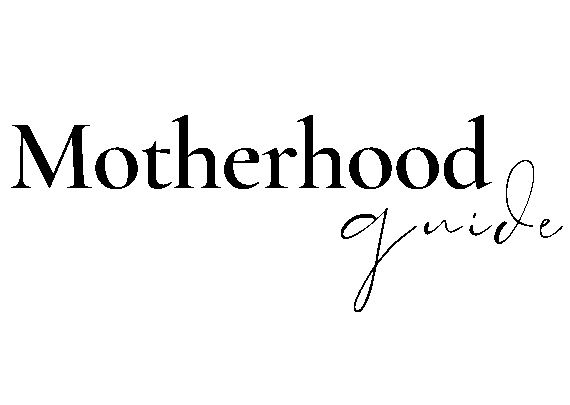Today, when politicians and public figures in the U.S. claim to uphold Christian values while showcasing women like Erika Kirk as symbolic leaders of pro-family organisations, it got me curious to look beyond appearances. According to Christianity (if I understand it right), the foundation of family are children. Christians see family as divine institution, foundational to society, intended for love, companionship, and procreation, and a primary place for spiritual nurture.
While much political attention is directed toward polarising debates over abortion, a more foundational issue often slips through the cracks: motherhood itself. And here America is one of only nine countries in the world (with some exceptions at the state level) that does not guarantee paid maternity leave. This means American women are left to navigate childbirth, recovery, and early child-rearing without guaranteed financial support from their government.
The other eight countries without paid maternity leave: Marshall Islands, Micronesia, Palau, Papua New Guinea, Nauru, Niue, Suriname, and Tonga: you read it right, none who’d claim global leadership or promote Christian family values in the same political context, which makes the U.S. situation all the more confusing.
Global Contrast: Paid Maternity Leave Around the World
Most of the world, regardless of economic circumstances, or religious background recognises paid maternity leave as essential. Countries vary in duration and compensation, but nearly all provide at least some protection (here’s only some to mention, due to the changes in the country law, some information might not be accurate):
Full Paid Leave:
- Norway: 49 weeks at 100% pay (or 61 weeks at 80%) split between parents
- Slovenia: 18 weeks at 100% salary (capped at 2.5× monthly wage)
- Austria: 16 weeks (8 before, 8 after delivery)
- Brazil: 17 weeks (leave can begin 28 days before due date)
- Chile: 18 weeks (6 prenatal, 12 postnatal)
- Colombia: 18 weeks (flexible; 1-2 weeks pre-delivery)
- Costa Rica: 16 weeks (1 month pre, 3 months post)
- Croatia: 14 weeks (4 pre, 10 post)
- Estonia: 14 weeks (70 pre, 30 post)
- Hungary: 24 weeks (up to 4 pre, 2 mandatory)
- France: 16 weeks (6 prenatal, 10 postnatal)
- Germany: 14 weeks (6 pre, 8 post)
- India: 26 weeks (8 prenatal, 18 postnatal)
- Israel: 26 weeks (15 paid, 11 optional unpaid)
- New Zealand: 26 weeks (can be shared between parents)
- Poland: 20 weeks (31 for twins, 37 for triplets)
- Portugal: 17 weeks (6 mandatory post-birth; fathers 28 days)
- Spain: 16 weeks (6 post-birth mandatory, remainder flexible)
Partial Paid Leave:
- Canada: Up to 40 weeks (55% wages), extended leave up to 69 weeks (33% wages)
- Iceland: 26 weeks at 80% pay
- Japan: 4 weeks at 67% pay, extendable to 52 weeks
- Sweden: 390 days at 80% income (90 days per parent, 300 days shared)
- Lithuania:18 weeks (126 days) of paid maternity leave, typically split into 70 days before and 56 days after birth
The U.S. in Context
Political rhetoric, especially from Republican leaders and movements aligned with traditional family advocacy, emphasises the importance of the traditional family, motherhood, and raising children within a Christian framework. Donald Trump have repeatedly linked his vision of national renewal to “strengthening traditional families,” while supporting movements of pro-family activism, advocating Christian-centered family policies and gender roles.
Yet, in this context of vocal commitment to family, the reality for American mothers is extremely contradictory. While leaders celebrate motherhood in speeches, rallies, and media campaigns, millions of women are forced to choose between their income and motherhood. This contradiction, to me, underscores all movements and declarations.
Historical Context and Economic Discrepancy
The push for paid maternity leave in the U.S. dates back to 1919 when government and labor officials first recognised its necessity. Despite it’s acknowledgment, significant progress did not occur until the 1970s, when some states implemented paid maternity leave through disability insurance programs. But the federal policy, however, remains absent.
Economically, the U.S. stands in great contrast to many countries offering paid maternity leave. In 2024, the U.S. had a nominal GDP per capita of approximately $85,809. In comparison, countries like Sweden ($57,723) or Lithuania ($29,386) have implemented generous paid maternity leave policies. This raises questions about the U.S.’s commitment in actually supporting families, particularly given its economic capacity.
Why Focus on Abortion and Ignore Motherhood Support
In the U.S., abortion topic takes over public debates and media coverage, while paid maternity leave remains silenced. Abortion, much like gun control, generates high visibility, morally and emotionally charges debates and polarises instead uniting. Restricting or regulating abortion can mobilise voters, energise political bases, and reinforce ideological positions. Implementing paid maternity leave, by contrast, requires systemic investment, coordination across states, and long-term economic commitments. Nobody argues that it isn’t needed, so it sparks no polarisation. In other words, it is politically “easier” to legislate restrictions on abortion than to invest in the labor-intensive work of supporting mothers.
Leaders often frame abortion as the central moral battleground for protecting life, yet the day-to-day realities of women who can’t afford to give birth due to lack of support and financial guarantees receive almost no attention.
For authorities that loudly proclaim their dedication to Christian principles and traditional family structures, ignoring the question of paid maternity leave exposes a stark gap between rhetoric and action. Supporting mothers is not an economic, political, or religious issue — it is a moral responsibility of human beings. It’s a bit more important than sending space robots, but far less interesting to the men in power.











